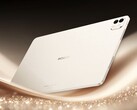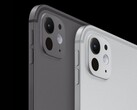Apple has just rolled out a refreshed 14-inch MacBook Pro, and the star of the show is undeniably the new Apple M5 chip. The firm claims the M5 is more powerful and power-efficient than its predecessor, promising a major leap forward for professionals and creatives.
However, the excitement surrounding the M5’s performance is being quickly overshadowed by a growing controversy that affects customers in Europe: the new M5 MacBook Pro now ships without a charger in the box. This means European consumers face an unexpected additional cost if they don't already own a compatible power adapter.
EU's regulation doesn't force Apple to charge extra for the M5 MacBook Pro charger
When the news first broke, early speculation suggested this change was mandated entirely by regulatory bodies. Specifically, the conversation centered on the European Union’s Waste from Electrical and Electronic Equipment (WEEE) directive. This directive is designed to tackle electronic waste by requiring manufacturers of larger devices, like laptops, to exclude redundant accessories if consumers are likely to own compatible alternatives. We have already seen this policy impacting iPhones since 2021 and more recent iPad models, and now it extends to the M5 MacBook Pro in Europe.
That explanation, however, only tells half the story.
After early reports exonerating Apple, reliable tech reporter Mark Gurman noted that while the EU regulations created the opportunity for this change, the final decision to charge customers extra for the adapter remains entirely with Apple.
Other companies facing similar accessory exclusions have taken steps to mitigate the cost to the consumer—for instance, by offering the adapter for free, packaged separately from the main device. Apple, however, chose a different path: charging its customers for the accessory.
For European consumers, this translates to a tangible price increase. Apple's standalone 70W power adapter retails for approximately €65 in EU countries and costs £59 in the UK. The move has quickly sparked a debate among the user base, pitting Apple's commitment to "green" initiatives against its decision to monetize a once-standard accessory for its high-end laptop.
Source(s)
Mark Gurman on X/Twitter























